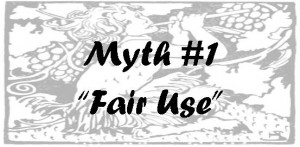 Myth #1: “Fair Use under the US Copyright Law covers this.” It does not. “Fair Use” pertains to educational use only; not for profit. Publishing, however, has a commercial intent and therefore authors are not excused from seeking copyright permission for work that is not original. This includes photographs, poems, song lyrics, artwork, or an excerpt from another book or publication.
Myth #1: “Fair Use under the US Copyright Law covers this.” It does not. “Fair Use” pertains to educational use only; not for profit. Publishing, however, has a commercial intent and therefore authors are not excused from seeking copyright permission for work that is not original. This includes photographs, poems, song lyrics, artwork, or an excerpt from another book or publication.
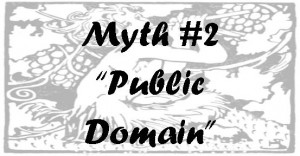 Myth #2: “It must be in the public domain because it was published more than 100 years ago.” Do not assume it is in the public domain based on when it was published. Investigate copyright. Rainer Maria Rilke died in 1926 and for many of his poems, and their translations, the copyright remains in effect.
Myth #2: “It must be in the public domain because it was published more than 100 years ago.” Do not assume it is in the public domain based on when it was published. Investigate copyright. Rainer Maria Rilke died in 1926 and for many of his poems, and their translations, the copyright remains in effect.
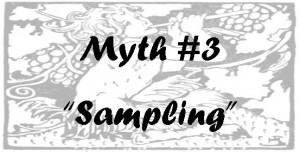 Myth #3: “I am just using one line from a song. It’s just sampling and I don’t need copyright permission.” Wrong. Recent court cases suggest even Tweets can be copyrighted. There is no minimum limit on the number of characters, words, or lines under which written permission is not required. The American Society of Composers, Authors, and Publishers (ASCAP) is the leader in performance royalties for songwriters.
Myth #3: “I am just using one line from a song. It’s just sampling and I don’t need copyright permission.” Wrong. Recent court cases suggest even Tweets can be copyrighted. There is no minimum limit on the number of characters, words, or lines under which written permission is not required. The American Society of Composers, Authors, and Publishers (ASCAP) is the leader in performance royalties for songwriters.
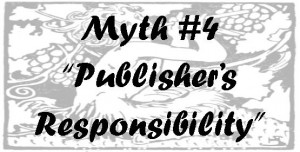 Myth #4: “My publisher will do all that for me.” Incorrect. Your contract with your publisher will stipulate your responsibility to secure copyright permissions before the book goes to print. They might help you find the right language for your written request or even provide letterhead and a generic form to assist you in securing copyright permissions. A few publishers will do it for you, for a fee, deducted from your advance/royalties.
Myth #4: “My publisher will do all that for me.” Incorrect. Your contract with your publisher will stipulate your responsibility to secure copyright permissions before the book goes to print. They might help you find the right language for your written request or even provide letterhead and a generic form to assist you in securing copyright permissions. A few publishers will do it for you, for a fee, deducted from your advance/royalties.
 Myth #5: “I took the picture, so I own copyright and can use my photograph.” Bzzzz. Wrong again. If the photograph is a picture of an original work of art, for example, one of Van Gogh’s paintings of iris, you will be required to get permission from the copyright holder, likely a museum or private collector. The museum may also stipulate the size and quality of the image and the caption, and the precise wording of the copyright credit. Expect to pay a fee. If you take a photograph with people in it, you will need their written consent to publish the photograph in your book.
Myth #5: “I took the picture, so I own copyright and can use my photograph.” Bzzzz. Wrong again. If the photograph is a picture of an original work of art, for example, one of Van Gogh’s paintings of iris, you will be required to get permission from the copyright holder, likely a museum or private collector. The museum may also stipulate the size and quality of the image and the caption, and the precise wording of the copyright credit. Expect to pay a fee. If you take a photograph with people in it, you will need their written consent to publish the photograph in your book.
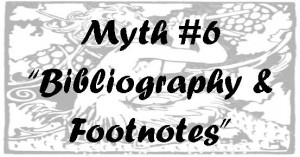 Myth #6: “As long as I have a bibliography and footnotes, I’ll be fine.” Sorry. Ignorance is no defense on copyright infringements. Your publishing contract requires your due diligence. If you fail to get copyright permission and you are sued, the author is liable, not the publisher.
Myth #6: “As long as I have a bibliography and footnotes, I’ll be fine.” Sorry. Ignorance is no defense on copyright infringements. Your publishing contract requires your due diligence. If you fail to get copyright permission and you are sued, the author is liable, not the publisher.
Ominous? Not really.
Copyright law protects authors, including you.
The good news is that there are plenty of times when copyright is granted willingly and graciously without any fees. And you will be pleasantly surprised at how much is already in the public domain. But liability for copyright infringement is yours and yours alone. Avoid costly mistakes. Ask permission, not forgiveness.
